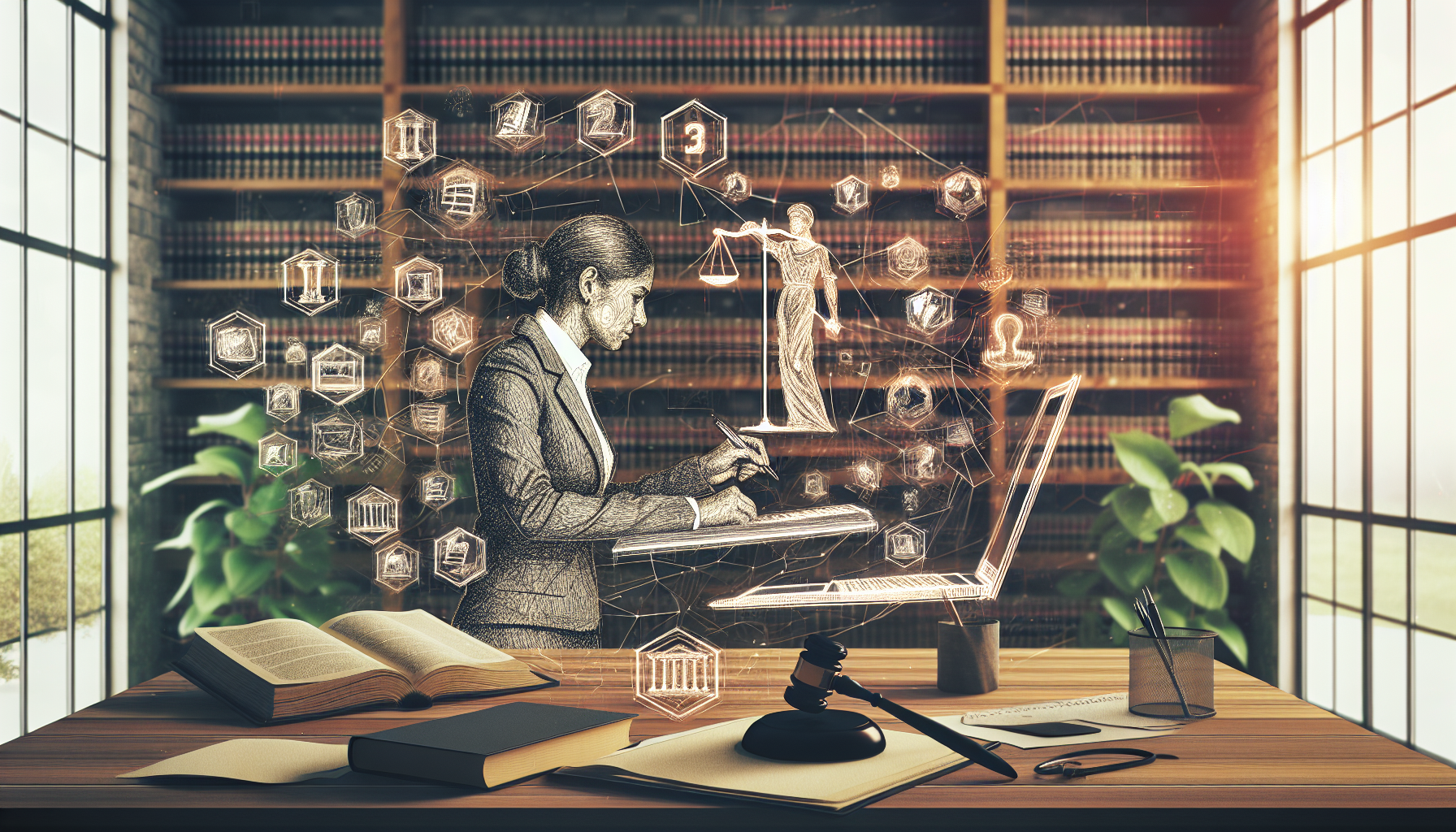
Unveiling ChatGPT’s Power in Digital Crime Investigation
In an era where digital crime cases are rapidly increasing, the legal field is compelled to evolve in tandem with technological advances. As paralegals grapple with the complexity and volume of digital evidence, efficient tools become indispensable. Enter ChatGPT—a sophisticated AI model with the capacity to revolutionize the way paralegals manage and analyze digital evidence, improving efficiency and accuracy in investigations.
Imagine a tool that not only aids in research but also streamlines various facets of digital crime investigation. This sets the stage for a closer examination of ChatGPT’s role in aiding paralegals with legal prompt creation, evidence management, and insightful analysis.
Crafting the Right Prompts: The Secret Sauce
The efficacy of ChatGPT hinges on the clarity and precision of the prompts posed to it. Accurate prompts can yield pertinent information that can be instrumental in legal research and case preparation.
For instance, employing well-defined prompts can help paralegals swiftly extract relevant legal details:
- General Information: “Explain the implications of the Digital Millennium Copyright Act (DMCA) in digital crime cases.”
- Case Law Insights: “Summarize recent case law involving cyber fraud under federal statutes.”
- Statutory Interpretation: “What are the main legal provisions under the Computer Fraud and Abuse Act (CFAA)?”
Specificity is paramount. A narrowly tailored prompt like, “Identify instances of admissible digital communications in cyberstalking cases,” will provide targeted insights, saving significant research time and ensuring high relevancy.
Learning to craft these effective prompts propels us to the next critical aspect—efficiently managing digital evidence.
Also read:
Evidentiary Mastery: ChatGPT for Evidence Management
Organizing and retrieving digital evidence can be daunting. ChatGPT simplifies this by supporting paralegals in cataloging, summarizing, and organizing large datasets of evidence.
Consider these sample prompts for optimizing evidence management:
- Cataloging: “List all pieces of digital evidence related to IP address activity on [date].”
- Summarizing: “Summarize the main findings from the forensic analysis report dated [insert date].”
- Organizing: “Organize the digital evidence by type and relevance to [case name].”
By responding to such meticulously crafted prompts, ChatGPT can efficiently collate and structure evidence, reducing manual labor and transforming chaotic data into comprehensible formats.
This tool’s efficacy extends further into the realm of automation and insight generation, where it can truly shine as a time-saving asset.
Also read:
Time-Saving Techniques: Automation Meets Insight
Time efficiency is of the essence in legal workflows. ChatGPT can automate document review and highlight pivotal evidence, allowing paralegals to focus on higher-value tasks.
Some creative prompts to streamline routine activities include:
- Document Review: “Identify and summarize key clauses within this 50-page contract related to digital asset management.”
- Evidence Pinpointing: “Highlight all mentions of the term ‘cryptocurrency transaction’ in this 200-page deposition transcript.”
- Report Generation: “Create an executive summary of the forensic audit report from [insert date].”
These time-saving techniques underscore ChatGPT’s potential for handling voluminous data, improving precision, and expediting the review process significantly.
However, beyond mere data management, ChatGPT offers capabilities for deeper analytical insights, thus aiding in the piecing together of digital evidence puzzles.
Also read:
Piecing the Digital Puzzle: Analytics and Trends
Uncovering patterns and trends in digital crime evidence often reveals crucial facets of a case. ChatGPT helps paralegals identify these patterns, offering a new dimension of analysis.
Analytical prompts can include:
- “Analyze email communication patterns for signs of phishing over the last six months.”
- “Identify any correlations between multiple IP addresses and login attempts from various geographical regions.”
- “Summarize trends in cyberattack vectors observed in the past year.”
Such analytics can uncover hidden connections and provide a comprehensive view of the digital evidence landscape, potentially transforming the course of an investigation.
As we hone in on these insights, the next crucial aspect is ensuring that our findings are effectively communicated and court-ready.
Also read:
Communication Game Changer: Court-Ready Preparation
Presenting legal findings effectively in court is paramount. ChatGPT can bolster these efforts by aiding in the preparation of compelling presentations and arguments.
Prompts that enhance court preparations could be:
- “Draft a persuasive argument for the admissibility of digital evidence in [specific case].”
- “Summarize key points for the opening statement in a cybercrime trial involving data breaches.”
- “Generate a PowerPoint outline that highlights the chronological sequence of digital evidence in [case name].”
ChatGPT’s language capabilities enable it to craft polished, coherent arguments, ensuring that paralegals can present their case in the most effective manner possible.
Nevertheless, while employing AI, it is imperative to address the ethical aspect and ensure data security.
Also read:
Data Security: Leveraging AI Safely and Ethically
When utilizing ChatGPT in legal work, safeguarding data and maintaining ethical standards is paramount. Best practices include:
- Data Encryption: Always using encrypted channels for data communication.
- Privacy Protocols: Ensuring that sensitive information is anonymized before processing.
- Access Controls: Restricting access to AI tools to authorized personnel only.
Ethical considerations also involve transparency about AI usage and maintaining regulatory compliance. Ensuring these practices can mitigate risks and maintain the integrity of legal work.
Adapting to these security measures leads us towards future-proofing our legal workflows, which is an ongoing process requiring continuous learning.
Also read:
Future-Proofing Your Workflow: Embracing Continuous Learning
Staying abreast of AI advancements is essential for maintaining an edge in the legal field. Continual learning and skill development allow paralegals to fully capitalize on emerging technologies like ChatGPT.
Encouraging a culture of adaptation and innovation ensures that the legal workforce remains proficient in leveraging the latest tools effectively, ultimately enhancing productivity and precision in digital crime investigations.
In conclusion, integrating ChatGPT into legal practice presents an incredible opportunity to enhance efficiency, accuracy, and insight, making it an invaluable asset in managing evidence in digital crime cases.


